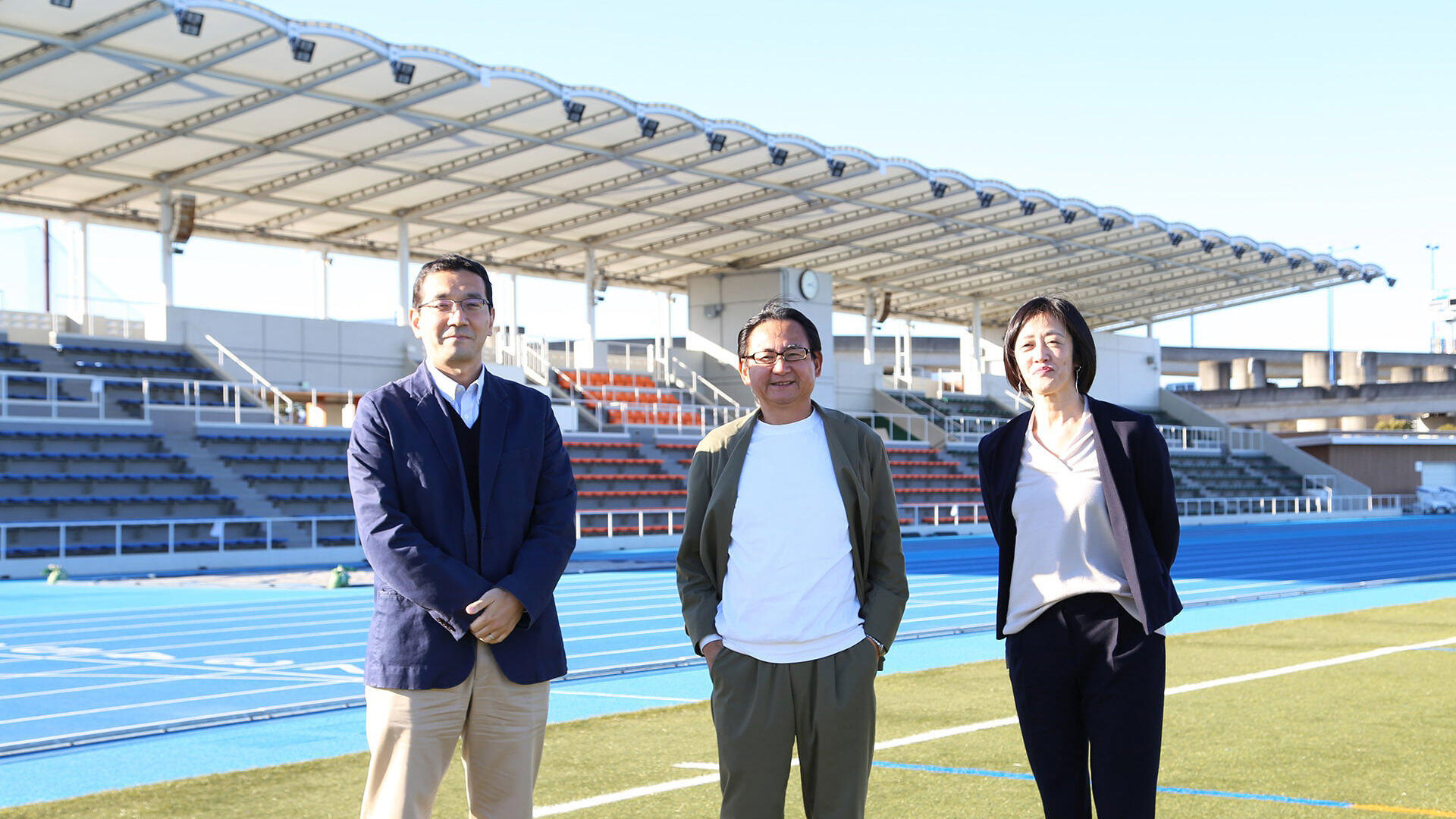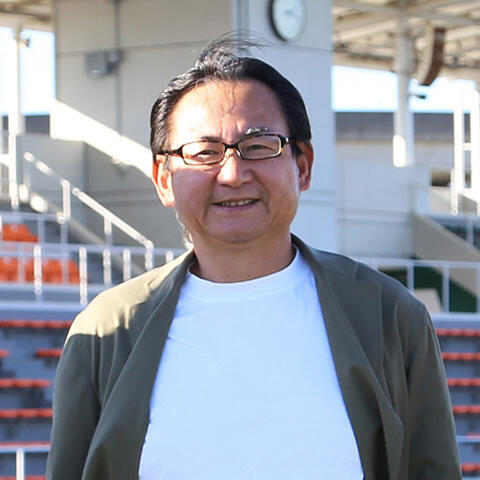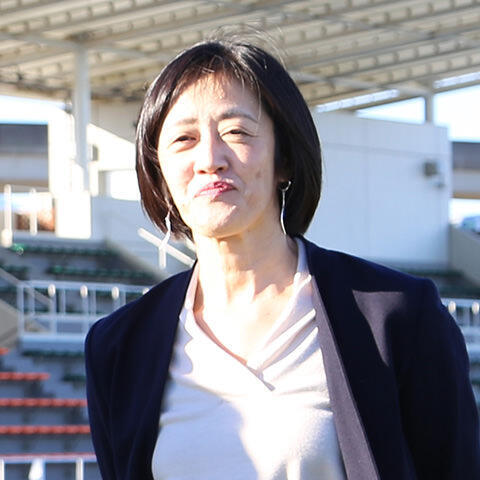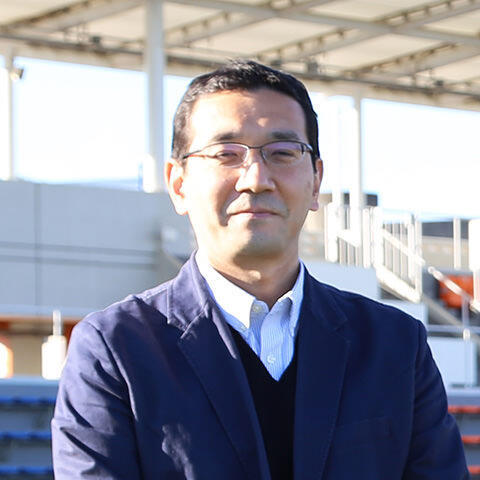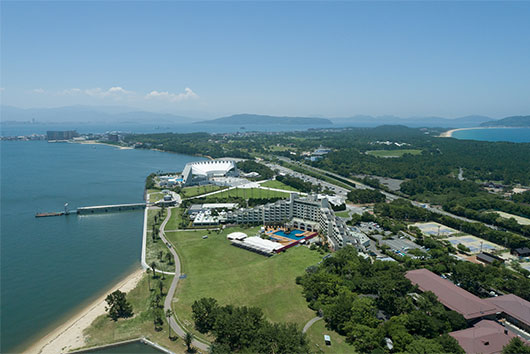Do you know about PFI (Private Finance Initiative) projects?
This is a public works methodology that utilizes private funds and know-how to design, construct, renovate, update, maintain, and operate public facilities all in one project. Yanagishima Sports Park in Chigasaki City, Kanagawa Prefecture, was the first sports park in Japan to use this method.
INDEX
- What is PFI business?
- A park that has smoothly adapted to the times for 20 years
- Revitalizing the local area based on the "purpose and intent" of each park
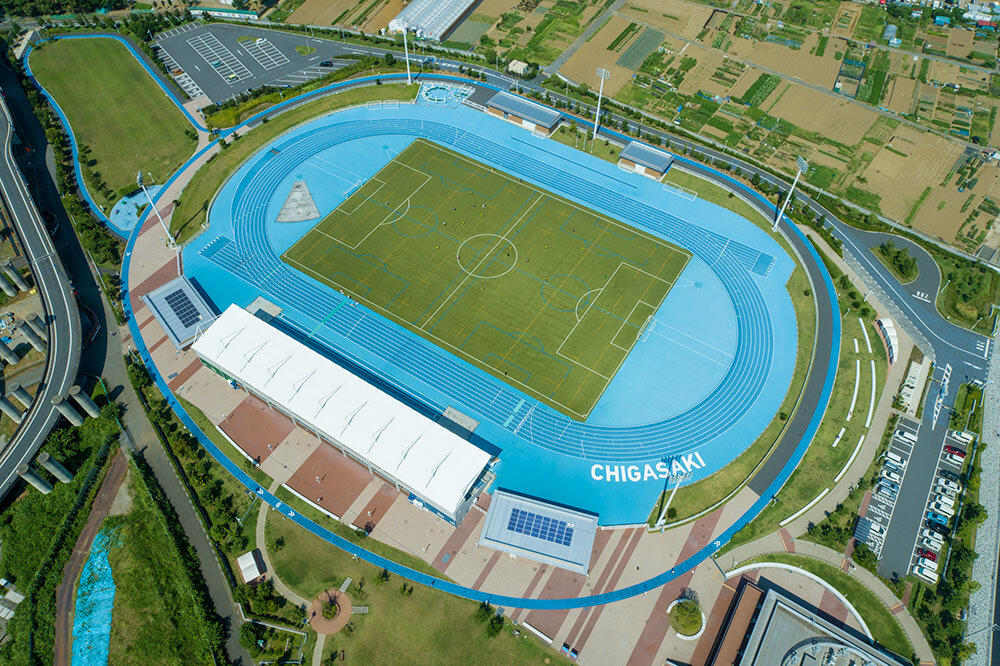
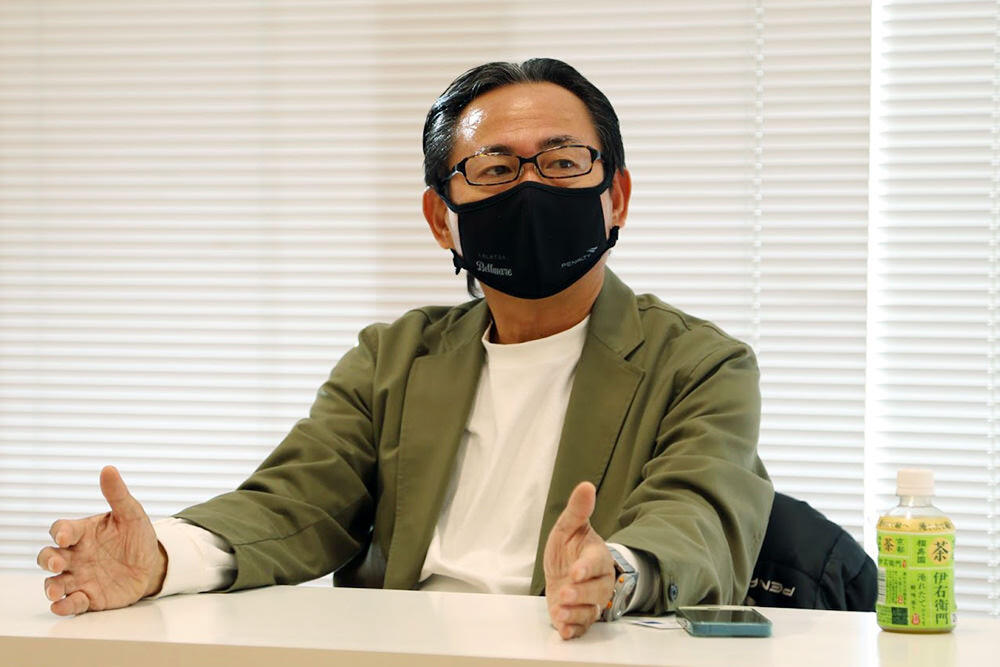
How has this location, which is also the hometown of Shonan Bellmare, become closer to the local community through the PFI project?
This time, we spoke with Satoko OKANO and Yuji SHIMIZU of PACIFIC CONSULTANTS CO., LTD. who were involved in this project, as well as Kiyoshi MAKABE, Chairman and Representative Director, President and Representative Director of Shonan Zoen Co., Ltd.
What is PFI business?
--Today we will be talking about Yanagishima Sports Park! First of all, this park was built and maintained as a PFI project. Could you tell us how it differs from regular public park projects?
SHIMIZU: In a typical public project like an urban park, the local government takes the lead in designing, constructing, maintaining, and operating the facility, and then holds bidding for each phase, and signs contracts with each business operator.
The PFI business model adopted for this park is a method of developing public facilities, in which design, construction, maintenance, operation, etc. are handled as an integrated project, and groups that can carry out the project are recruited from the private sector.
For this purpose, we have established a business company (SPC*1) together with local companies such as Kamei Kogyo Holdings Co., Ltd., headquartered in Chigasaki City, and Shonan Zoen Co., Ltd., and we are responsible for the design, construction, and even maintenance, management, and operation for 20 years after completion.
--Everyone with their own areas of expertise came together to tackle the task of "creating a park." Was this a new endeavor for PACIFIC CONSULTANTS?
SHIMIZU: When the planning started, it was the first time in the country that a local government had undertaken a sports park project using the PFI approach. As we were a company that mainly undertook the planning and design of public works projects, participating in a PFI project as a business operator was a new challenge for us.
--What are the benefits of PFI projects?
SHIMIZU: When different companies are in charge of each phase of the design, construction, management, operation, etc., there are times when, while actually maintaining and operating the park, they feel inconvenienced and ask themselves, "Why did we build something like this?" Of course, at the design stage, the park is constructed according to the thoughts and intentions, and meets various conditions, but when it comes to operating it, things do not go as intended, and it is sometimes operated differently from what was intended.
The greatest advantage of PFI projects is that they allow the design and construction to utilize the know-how and technology of private business operators, with an eye toward the maintenance and operation stages.
The important thing is to approach effectively how to use it. Therefore, we decided to work with Shonan Bellmare, a company that is already active in the local area and has deep roots in the area and knows it well.
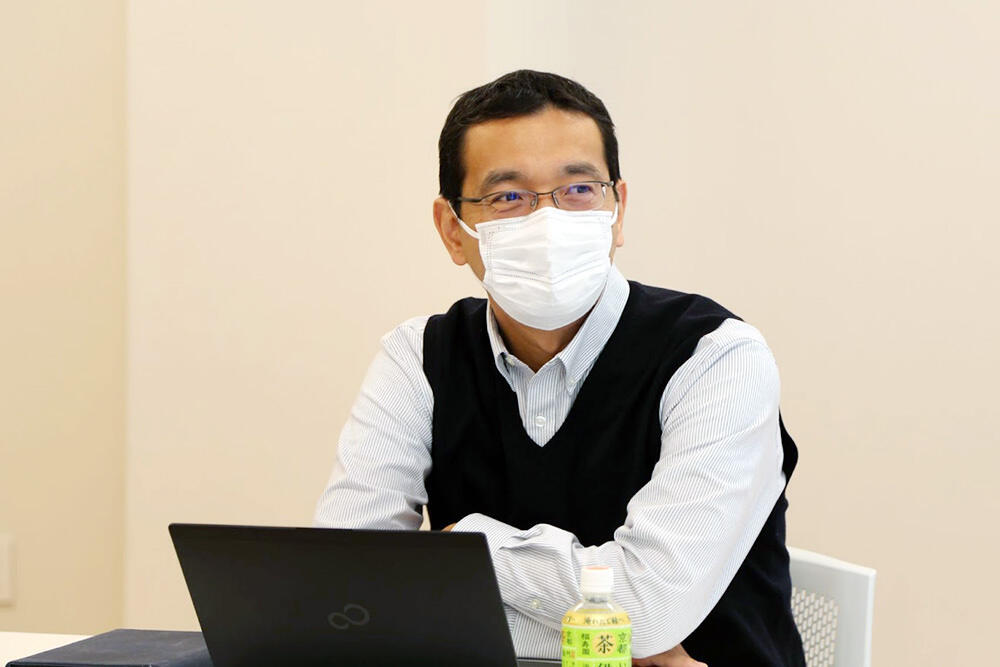
A park that has smoothly adapted to the times for 20 years
--Mr. MAKABE, do you remember when you first became involved in the Yanagishima Sports Park project?
MAKABE: I have previously been involved in the operation and maintenance of other parks as part of Shonan Landscape Gardening and Shonan Bellmare, including as a designated manager.
Designated management is often carried out for three to five years, and there is an affinity with Shonan Bellmare, as it implements content such as soccer schools. On the other hand, even if you want to do something new and develop the park as a whole, you may find it difficult, including the administrative budget.
With this PFI project, we will be able to operate the park over a 20-year period.
As times change dramatically, we can manage the park over a long period of time. For this reason, we decided to work together with the local community, including local professional tennis player Ai SUGIYAMA and Bellmare, to create the park.
--What are the benefits of having the private sector, rather than local governments, take the lead in this project?
MAKABE: Of course, this is a project that we have been commissioned to carry out by Chigasaki City, but many people who are not Chigasaki residents also visit the park. In particular, at Yanagishima Sports Park, which is located on the edge of Chigasaki City, we need to attract many people who want to come to the park without being tied down by the local government, and make it a lively park. In this sense, I think it is beneficial for us, a private business operator, to be involved.
--I see. So you have a lot of freedom without being bound by the framework of local governments, etc.
MAKABE: This park is maintained and operated by a private business operator. This means that complaints about the park come directly to us. In such cases, local businesses are directly connected to their reputations, so they can operate the park responsibly for the local community and steadily while listening to the voices of users.

Revitalizing the local area based on the "purpose and intent" of each park
--Does having a good park in a neighborhood mean it revitalizes the area?
MAKABE: The word "park" itself can be ambiguous. There are rules that dictate how many parks there must be for a given population.
It is important for parks to have different purposes depending on the location. For example, because there are many elderly people in this area, it may be made into a park filled with flowers, or because this is residential land, it may be made into a flat area where children can play. I think it would be good if each location had its own unique characteristics.
In the case of Yanagishima Sports Park, the original theme has been "revitalizing the town through sports," so it would be great if we could continue to move forward while constantly evaluating the issue.
OKANO: I've been involved in PFI projects for over 20 years, so I've been able to make sure that the vision of MAKABE-san and SUGIYAMA-san from the design stage continues, and that our team's concept remains consistent. I think that by responding to needs such as "I want to connect more people through sports!" and "I want to see people playing sports with energy!" and continuing to evolve, more people will become involved in the park, which is what will revitalize the area, starting from Yanagishima Sports Park.
--What did you focus on most in the plan for Yanagishima Sports Park?
MAKABE: One of the ideas I offered at the design stage was to create a creative color scheme for the stadium roof and seats.
From our experience hosting sporting events and tournaments, we decided to cover the entire stand because it would be very difficult to change clothes in rainy weather in stadiums without roofs. We also color-coded the seats vertically into three blocks. This makes it easier for users to understand, for example by saying "gather in the green block."
I think these opinions come from us, the people involved in the operations.
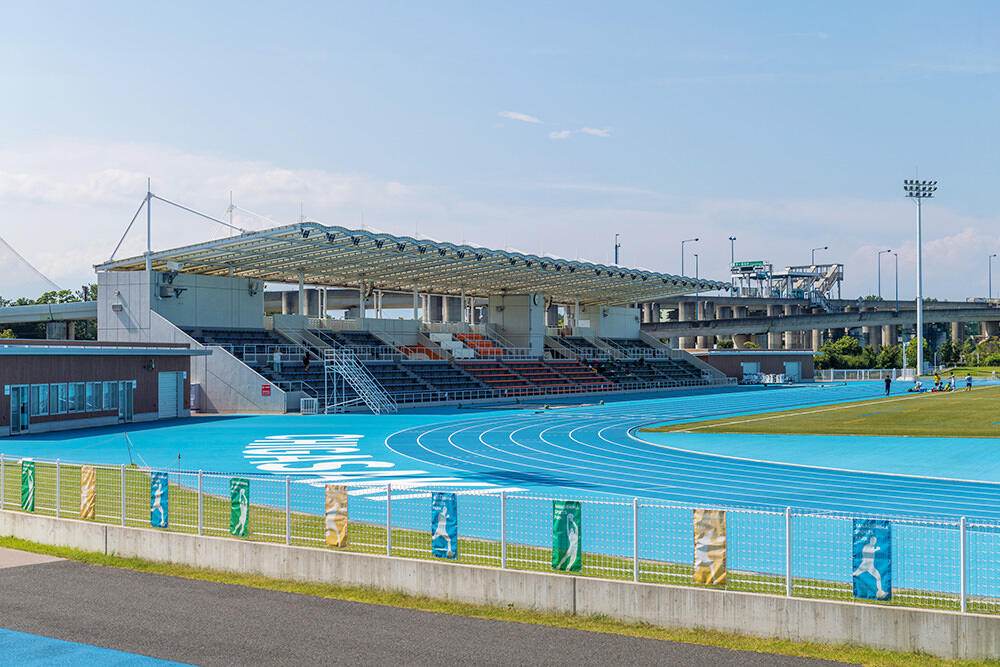
--The content seems to be very rich.
MAKABE: The people who gathered at SPC share their areas of expertise. For Shonan Bellmare, a wide range of activities are carried out, including soccer and running classes, restaurants, bone setting clinics, and tennis schools run by other businesses. It would be difficult to plan and implement all of this on one company, but the people who helped create the PFI project are providing content with their own ideas.
--What benefits does a company like PACIFIC CONSULTANTS have in getting involved in local businesses like this?
MAKABE: When it comes to a park of this size, it requires a certain amount of know-how, such as dealing with the government and various legal issues. I think it would be difficult for local governments and local businesses to have that know-how.
By having PACIFIC CONSULTANTS join us, the whole region will be able to learn and absorb this know-how. What's important is that by passing it on to the next generation, including the local government and local businesses, it will become possible for the whole region to carry out this type of project.
--Thank you very much! I'm looking forward to seeing the park develop in the future!



